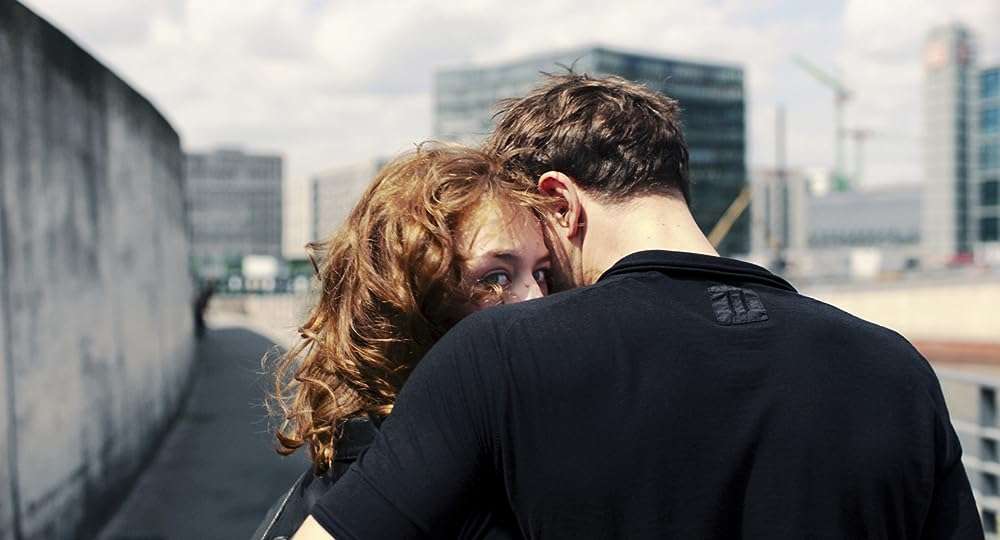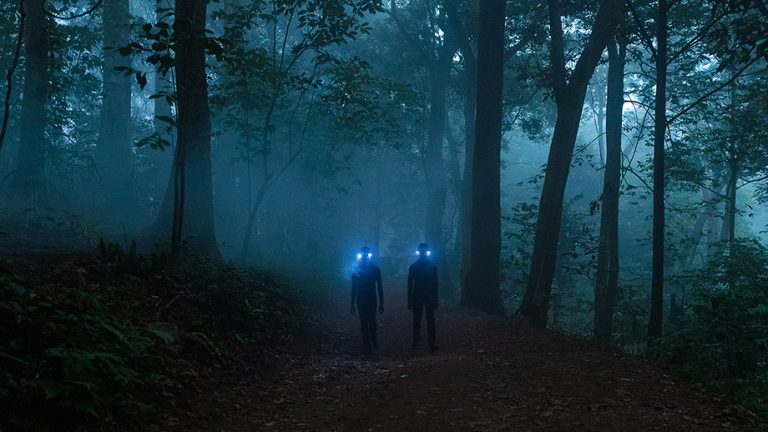Undine (2020) Essay: In the 2010s, no one was better than Christian Petzold when it came to crafting deeply emotional melodramas grounded in the very real questions of German identity in the face of reunification and war. He started the decade off with two Nina Hoss collaborations: Barbara, the story of a 1980s East German doctor desperate to leave, and Phoenix, a Hitchcockian tale of mistaken identity centered around a Holocaust survivor unsure of her husband’s involvement in her imprisonment. He followed this up with Transit, a drama based on a World War II-era novel but set in present-day Marseilles as refugees try to flee a fascist state.
Considering that string of critically acclaimed historical dramas, it seems odd that he would begin the following decade with a modern-day adaptation of a myth that had inspired Hans Christian Anderson’s “The Little Mermaid.” However, this very fantasy creates one of his most insightful and loving portraits of Berlin’s past, present, and future.
Though the myth of “Undine” has been written about by many authors like Ovid or Paracelsus, Petzold takes most of his inspiration from the 1811 novella by Friedrich de la Motte Fouqué. In it, a young knight named Huldbrand gets lost in a forest and meets and falls in love with a girl named Undine. When the two marry, she reveals that she is a water spirit and that her kind does not have immortal souls or any sense of morals, but she can gain them by marrying a human. However, she warns him that he must remain faithful to her or her family will take her back, and he will have to die.
However, when they return to his kingdom, he begins to regain feelings for his old-flame Bertalda. Undine’s conniving water spirit, Uncle Kuhleborn, begins sending storms, forcing everyone to believe that Undine is involved in witchcraft. When Huldbrand accuses her of being a sorceress while they are cruising along a river, she is swiftly taken, and Huldbrand returns to Bertalda’s loving arms shortly after that. When Bertalda uncovers a fountain Undine had purposefully kept sealed in the palace, Undine appears from the water and tearfully drowns Huldbrand. At his funeral, she appears among the humans one last time when she transforms into a stream encircling his grave in an eternal embrace.
Undine’s story is one of tragedy and a cursed existence in this telling. Though her intentions may be pure, she can only create destruction. Petzold’s Undine, however, is a woman who has lived in and loved Berlin from the city’s inception. He has transformed her into an independent historian who guides tourists through miniature models of the old city landscapes of Berlin. Unlike other celebrated European capitals like Rome or Paris, Berlin is a relatively new city, having been founded somewhere around the 13th century. Not only that, but the city’s modern boundaries were only established in 1920 and then swiftly disrupted by more than forty years of division.
The Berlin that people know and love today is only 30 years old. Berlin, which derives its name from the Slavic word for “dry spot on the marsh,” was formed on a swamp where an eternal creature like Undine could observe its progress. No longer a city made up of modern buildings and an absent past, Undine brings heritage and mythology to the city.
Bringing this history changes the story entirely. We meet Undine at what should be the end of her story when her lover Johannes breaks up with her. She warns him that she’ll have to kill him now and tries to save him by ordering him to wait for her in a nearby cafe while she finishes work and take everything he said back. When she returns to the cafe, he is gone, and Christoph, a handsome industrial diver, is there to ask her on a date.

Distracted by the calls of the sea which ring out from the faucet and the fish tank, she remains indifferent until he bumps into the tank, cracks it, and forces her to push him out of the way and save him as the glass breaks and the water pours out. Before her destruction can become complete, a new and already more vibrant love is born. Undine’s original romance is depicted as a kind of whirlwind that revitalizes a kingdom as swiftly as she destroys it. This Undine has too much history for her ending to become a loud blip.
Christoph’s appearance changes everything. Unlike Johannes or the original Huldbrand, his situation is very similar to hers. She’s a water spirit whose admiration for humans leads her to live and work on the land, and Christoph lives most of his life underwater as an industrial diver working in a flooded town at the bottom of the lake. Both don’t belong in these worlds but continue anyways because of their love of the unknown. He loves her passion for history, and because of that, they can make a stroll through the ultra-modern buildings of Berlin seem like a courtship out of an 18th-century novel.
As a result, Undine is able to keep danger at bay. But soon, his doubts about her faithfulness and commitment prove too much when he confronts her about seeing Johannes again in an improbable phone call. Undine lies to him, and when she tries to see him, she is informed that he was involved in an accident underwater hours before that supposed call took place, and he is now in a coma.
This would typically be the point in the story where Undine dissolves in a puddle around his grave, but instead of resorting to her cursed nature, she makes a choice. She knows sacrifice is necessary, but Christoph does not have to be the one. While Johannes is swimming in his pool alone one night, she enters and drowns him and then submerges herself in the lake where Christoph works. Moments later, Christoph suddenly awakens, screaming out her name. She becomes like many of the lost buildings and plans for Berlin, particularly the Humboldt Forum, a building whose story she lovingly recounted to Christoph.
Built over three centuries, with its final form coming together in the 18th century, this palace rested in the city center and became a cultural mainstay for Berlin. However, after the destruction of World War II, the East German government decided not to rebuild it and instead destroyed the remains and used it for parade grounds. For many years the empty space haunted the city like a phantom until very recently, when the unified government decided to rebuild it and turn the palace into a museum. In Undine’s words, “Modern architectural theory teaches us that the design of a building can be derived from the best possible realization of its intended use. Form follows function. The deceptive part lies in the hypothesis that this makes no real difference, which is the same as claiming progress is impossible.”
This begs the question: even though she spares Christoph, is her death a bad omen? It seems like it at first. When Christoph goes to find remnants of her existence, all he finds are modern replacements. Her apartment no longer belongs to her and is being used for short-term rentals. As every second goes by, she is forgotten until two years later when Christoph, now engaged and expecting a child, dives into the lake for the first time since his accident. On his dive, he catches a glimpse of her though it is not caught on camera.
When his overwhelming curiosity forces him back, he sees her and holds her, but she does not take him back. He finds a sign of her existence which he had once forgotten, her name written under the water. While the Humboldt Forum is constructed to look as though time had committed no crimes against it, Christoph can finally get closure from this love and return to his life with the knowledge and appreciation of Undine’s time in this deceptively old city. The film ends with the camera submerging into the waters that hold her. It’s one last reminder that the ruins still exist below the surface of this modern city.







